
What I learned from watching every TED-Ed Lesson

As a Production Intern at TED-ED, a big part of my job has been to make sure none of our video files have any glitches. So for the past two months, I’ve watched every single TED-Ed Lesson—nearly 500 of them—at least twice. Basically, I’ve been fully immersed in TED-Ed. If TED-Ed were a menu, I’d have tried everything on it. If TED-Ed were a foreign country, I would be a fluent speaker of TED-Ed-ese. If TED-Ed were a network of highways, I could drive anywhere with my eyes closed (not that I would ever drive with my eyes closed, of course).
As I watched hundreds of lessons created by experts, it quickly became clear to me that I know very little about anything. I learned that no one knows why the moon looks huge when it’s on the horizon. Michelangelo’s statue of David was sculpted with odd proportions because of the angle from which he intended people to view it. Queen Victoria may or may not have had a tattoo of a tiger fighting a python. I learned that on August 21st, 2017, there will be a full solar eclipse. I also learned not to look directly at it. I learned countless bits of knowledge such as these.
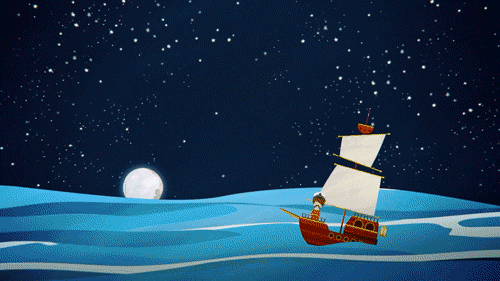
The moon illusion – Andrew Vanden Heuvel
But what amazed me most about learning these facts was not how interesting they were, or how smart they made me sound when I brought them up in conversations. What really surprised me was the simple fact that someone had thought to ask: “Did Queen Victoria have any tattoos?” It amazed me that I was learning answers to questions I would have never thought to ask.
Every innovation begins with a question, coupled with enough curiosity to find the answer. If you don’t believe asking innovative questions is important, I’d encourage you to watch a couple of TED-Ed Lessons. For example, “What is Zeno’s Dichotomy Paradox?” by Colm Kelleher challenged me with thought problems dreamt up by Zeno, an ancient Greek philosopher. Zeno asked questions about what appeared to be inconsistencies in the way we measure reality. He took nothing for granted and began without assumptions. Discovery doesn’t begin with knowledge—it begins with questions and curiosity.
The importance of asking thoughtful questions is the first major thing I learned from watching every TED-Ed Lesson. The second thing I learned was to more deeply appreciate animation. Creating even a very short animated video requires months of work (at least). If you watch hours upon hours of animation, you’ll start noticing some of the clever techniques animators use to bring their artwork to life.
One of my favorite examples of this is in Ray Laurence’s lesson “A glimpse of teenage life in ancient Rome.” The animation in this episode is gorgeous and richly textured, particularly the scenes set in the marketplace. The way characters in the foreground are out-of-focus, and the way the point-of-view bobs and floats creates the illusion that we’re right there in a Roman marketplace. These techniques add new dimensions of experience to the scene.
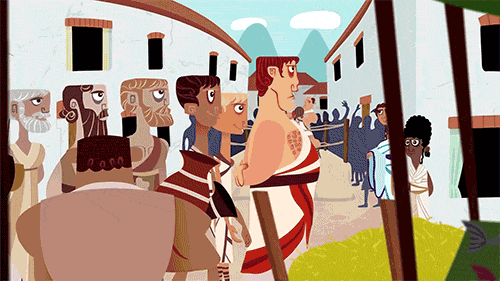
A glimpse of teenage life in ancient Rome – Ray Laurence
Learning from expert educators and animators inspired me to think deeply about things, not just skim the surface. But you don’t need to spend weeks watching hundreds of TED-Ed lessons to get excited about learning and creating. Just watch a few. What questions will you ask about the world around you?
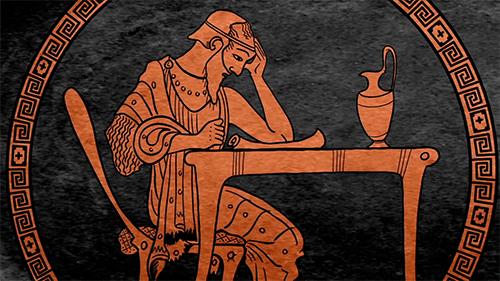
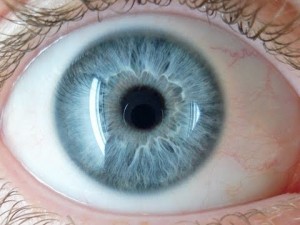
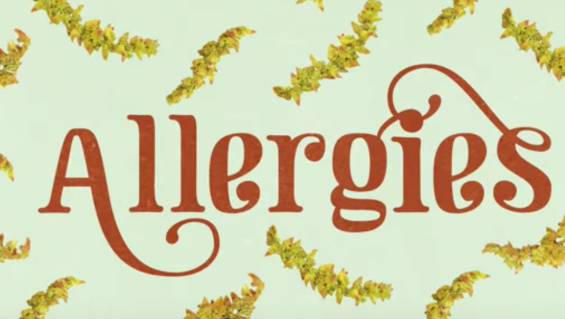

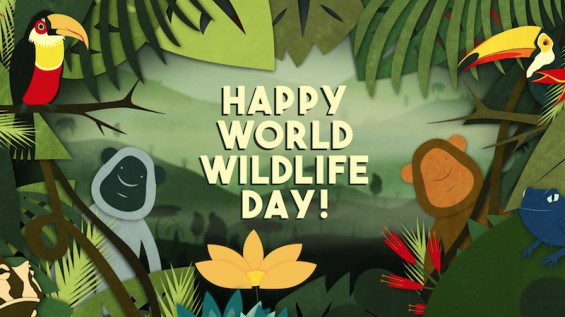
hysterical
I love the intros to the ted-ed videos! They make me feel a certain way*_*
I’m an ESL teacher, and basically every moment of prep is spent on watching Ted/Ted-esque videos. It’s amazing what I’ve learned, and how these videos can be transformed into engaging lessons. Thank you, TED, for being such a great resource! I particularly love your videos on irony. They always make my students laugh!
So well written and yes! Every innovation just begin with a question
Just a great simple tip to enhance our day! Thank you!
I wonder if the moon looks big on the horizon because the atmosphere creates a lens effect? I have nothing to back it up or anything. It just came to me reading this. On the horizon is where the atmosphere would convex from your perspective.
TED videos are for me one of the best CPD resources on the internet. The wide range subject base and specialist knowledge makes it a great platform of learning and inquiry. Thank you
TED ED makes you question some of your own thought patterns.
I believe questioning is the first step to innovation. This morning I and my husband were arguing about the same topic I am reading now. He says errr don’t have to ask silly questions, and I said as long as that is the area that we don’t know or need more explanation, everything is worth asking. He said we need to have confidence on what we already knew, we shouldn’t be as always asking , I say of course ,but we don’t know everything even about the things we say we know, and the above writing seems to support my argument, but / I still believe we also need to act on what we already knew boldly, while continuing to reveal literacy